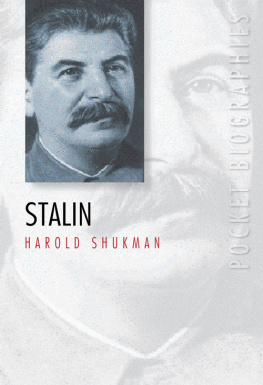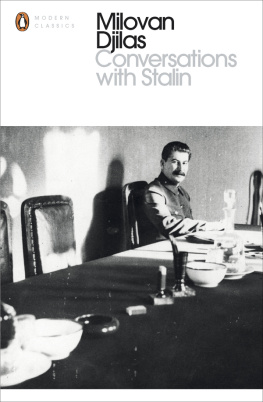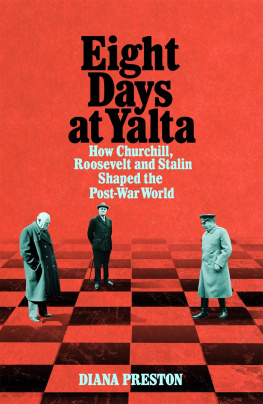Introduction
EACH PASSING YEAR DEEPENS OUR REALIZATION OF THE triumph of mans spirit marked by the survival of the great city of Leningrad under the 900-day siege imposed by Hitlers legions in World War II.
Nothing can diminish the achievement of the men and women who fought on despite hunger, cold, disease, bombs, shells, lack of heat or transportation in a city that seemed given over to death. The story of those days is an epic which will stir human hearts as long as mankind exists on earth.
This narrative has itself come to play a role in the Leningrad drama. Published on the 25th anniversary of the lifting of the siege, it has been printed in translation in almost every country around the world. It has been hailed in America, in Europe, and in Asia for its celebration of the extraordinary heroism of the people of Leningrad, whose conduct shines like a beacon in a world which is often murky and not precisely heroic.
Only in one great country has The 900 Days not been published. That country is the Soviet Union. True, a Russian-language paperback edition was published but in the United States. True, there are few citizens of Leningrad who are not aware of The 900 Days and tens of thousands of them have read its words and treasure them. Nowhere has The 900 Days been read more avidly and with deeper insight and appreciation than in Leningrad. But it has not been published there. Instead it was instantly attacked by the official Soviet propaganda agencies. Pravda published a full-page attack, charging that The 900 Days besmirched the heroism of Leningrad and demeaned the role of the Communist Party in the citys defense. It was, Pravda declared, one more volley in Americas cold-war attack on the Soviet. The name of the venerable Marshal Georgi K. Zhukov was signed to these wordsan ironic touch since Zhukov himself had been one of the most savage critics of the blunders and misjudgments (of Stalin and the Party) which led to Leningrad being subjected to the terrible siege.
The drumfire of fatuous polemics was kept on for several years in article after article. In fact, with the 40th anniversary of the end of World War II this theme reappeared in several Soviet commentaries on American distortions and disinformation about the war on the Eastern Front in World War II. For many years the author was unable to obtain a visa to return to the Soviet Union, and Leningrad specifically. He was for practical purposes declared persona non grata.
This, as Pravda itself would say, was not accidental. Although the great bulk of information in The 900 Days is drawn directly from Soviet sources, supplemented by the authors personal observations of Leningrad when he went there in the days of the lifting of the siege and from interviews of survivors, the valuable and often surprisingly frank reminiscences of military figures published in Moscow and Leningrad at the end of the 1950s and early 1960s quickly dried up.
That source of accurate and revealing information about the siege was a byproduct of the relative liberalism of the regime of Nikita S. Khrushchev. When he was supplanted in 1964 by Leonid Brezhnev, it halted. The lid was hammered down. From that day forward the revelations about what happened at Leningrad were suppressed. The story was tidied up. No more blunders. No more intrigue. No more stupidity by Stalin and his generals. Death tolls and suffering were soft-pedaled. In fact, for a long time nothing of consequence was published about Leningrad. Leningrad writers who wanted to write about the heroic event found endless difficulties with their own literary censors. Several Leningraders who assisted with materials for The 900 Days encountered special handicaps. One elderly historian found his own work held up until a rival writer published a potboiler on the same subject. A prescription for medicines to treat his heart condition was blocked until he was near death.
Copies of The 900 Days sent to residents in Leningrad who helped with the book were seized by customs. American tourists who brought it in their baggage found it again and again confiscated. When I congratulated a young Soviet diplomat who proudly said he possessed a copy, I asked him how he got it. Oh, he said, I have a friend in customs. One Leningrader who had contributed time and material to The 900 Days first saw the finished book in the hands of an American tourist walking down Nevsky Prospekt. He shyly asked if he could look at the book and then asked the tourist if he would part with it. Unfortunately the tourist, not understanding what was at stake, declined to part with it even when the elderly Leningrad man said: I'm in that book.
After all these years no work like The 900 Days has been published in Leningrad, There was a flurry of reminiscences, some very touching, a fine collection of interviews of individuals, some sensitive poetry but the best historical and personal accounts came out twenty-five years ago and are drawn on in this volume.
Leningrad did not fit the propaganda picture of the war. Its epic was sui generis. The people played more of a role than the Party (this was one of the major criticisms of The 900 Days in Moscow). It suffered not only from poor planning and conflicts among high military and party figures but also from Stalins prejudice against or even fear of Leningrad. Historically, Stalin seems to have felt that because Leningrad (under the name of Petrograd) gave birth to the 1917 Revolution, the city might ultimately rise against him. In a sense, this reflected an historic prejudice of Moscow against the new capital which Peter the Great built to be his window on the west.












